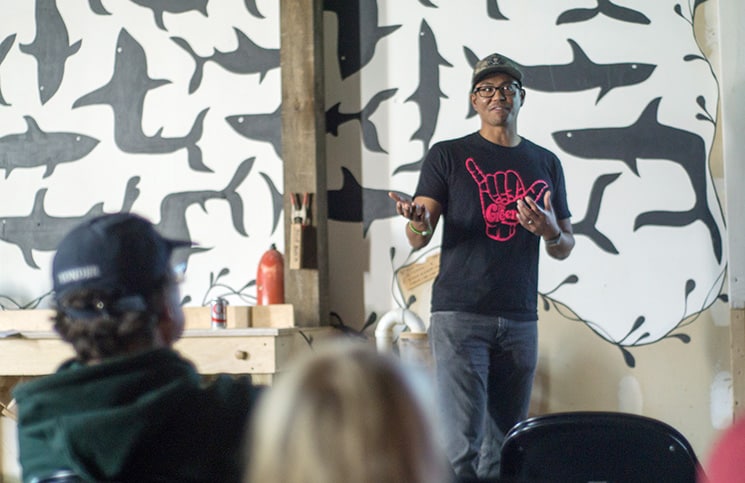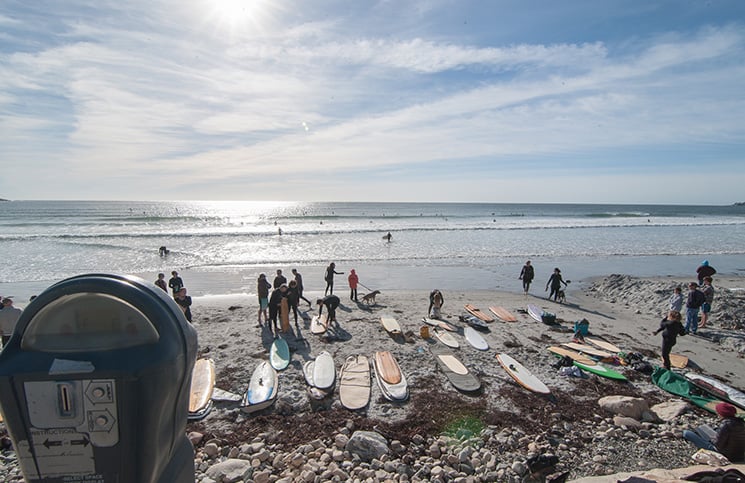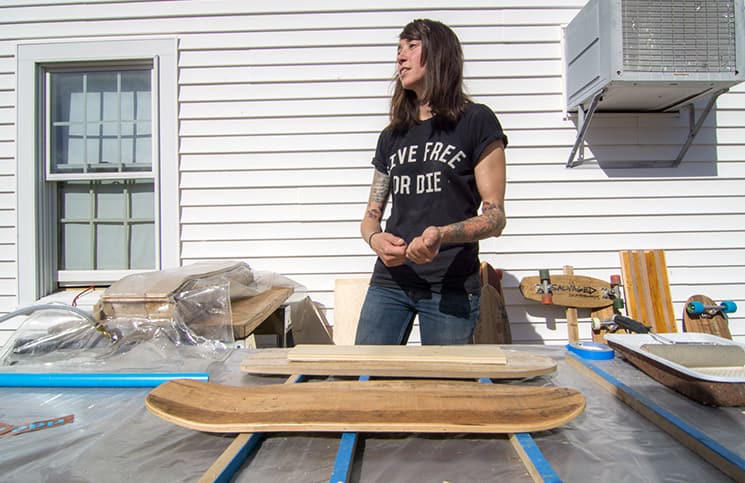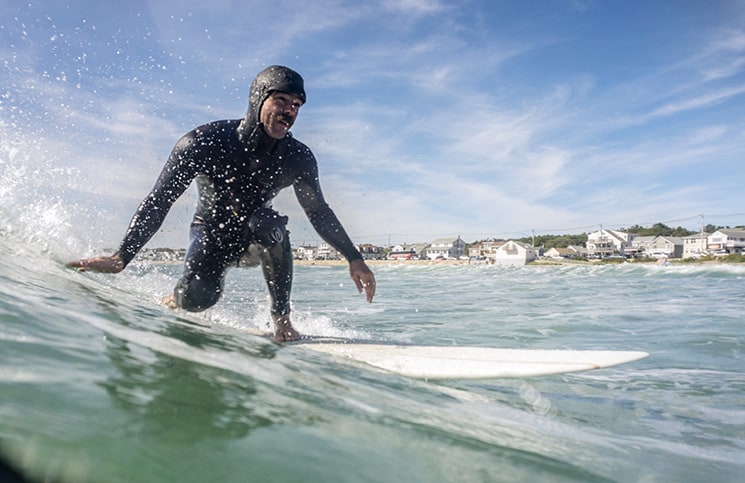Surfing has been around for centuries, but it wasn’t until the 1950s that polyurethane foam boards became prevalent. The new boards were durable and inexpensive, and they could be shaped with machines for mass production. But, as technology made surfing more accessible, it also took the sport further away from its natural roots.

Rey Banatao, co-owner of Entropy Resins in California, discusses the many applications of the company’s bio-based epoxy resins, which can be used on surfboards, snowboards, skis, boats, and even cars and airplanes. “For every ton of resin we make, we save four tons of CO2 emissions,” he said.
A number of innovative surfers around the country are working to make surfboards more sustainable. Surfers with backgrounds in biochemistry, engineering, woodworking, and more are coming up with ideas that could revolutionize the industry. And some of their eco-friendly concepts could have applications that stretch far beyond the surfing world.
“A lot of those guys, they’re certainly working on things much bigger than the surf industry,” said Mike LaVecchia, founder and co-owner of Grain Surfboards. “But, at the same time, their passion is surfing and it’s probably what helps to keep them motivated.”
Grain Surfboards, located on a large farm in York, Maine, hosted its fifth annual Surf Re-Evolution event on Sept. 26. The festival included surfing demos, artwork by Andy Davis, local food and beer, surf films, and presentations by speakers from across the country. It concluded with a bonfire and live music from Tiger Belly. By LaVecchia’s estimation, about 750 people attended.

Surf Re-Evolution began with a morning beach demo at Long Sands Beach in York, Maine, where Grain Surfboards and other board makers let guests try out
their boards.
The idea behind Re-Evolution, LaVecchia said, is to celebrate “new eco-friendly materials that people are working on, new shapes and designs, new processes — just basically getting people together that are rethinking how surfboards are made.”
Among the afternoon’s speakers was Michael Stewart, co-founder of the California-based nonprofit Sustainable Surf. He discussed the organization’s Ecoboard project, which labels surfboards made with a reduced environmental impact. Next came Rey Banatao, co-founder of Entropy Resins, a California company that makes bio-based epoxy resins for use on surfboards and other products.
Grain Surfboards uses northern white cedar grown sustainably in Maine, avoiding the harmful chemicals used in polyurethane boards. They also use Entropy’s bio-based resins, and they reuse almost all of their offcuts to make other products, like skateboards and handplanes.

Gabriele Tise, owner of Salvaged Skateboards in Rollinsford, displays some of her skateboard decks. Tise makes skateboards out of reclaimed wood, including shipping palates, flooring, and decking. “I started with a whiskey barrel that a friend had given me, and that sparked the idea of using old, salvaged, reclaimed wood and keeping it with its original patina,” she said. She also makes skateboards for Grain Surfboards, using offcuts from the company’s wooden surfboards.
“There’s very little waste,” LaVecchia said. “Everything that gets cut off from one process gets used for another product.”
Although sustainable concepts are gaining traction in the surfing world, it will take bigger commitments from major board makers to generate real change. LaVecchia hopes the momentum continues to build.
“This isn’t a way to sell more products; this is just something you should be doing,” he said. “I don’t think the majority of surfers think all that much about sustainability, but I do think that the conversation is happening.”
 Jacques Beriau, owner of Sea Love Surfboards in North Berwick, Maine, rides on one of his boards at Long Sands Beach.
Jacques Beriau, owner of Sea Love Surfboards in North Berwick, Maine, rides on one of his boards at Long Sands Beach.
